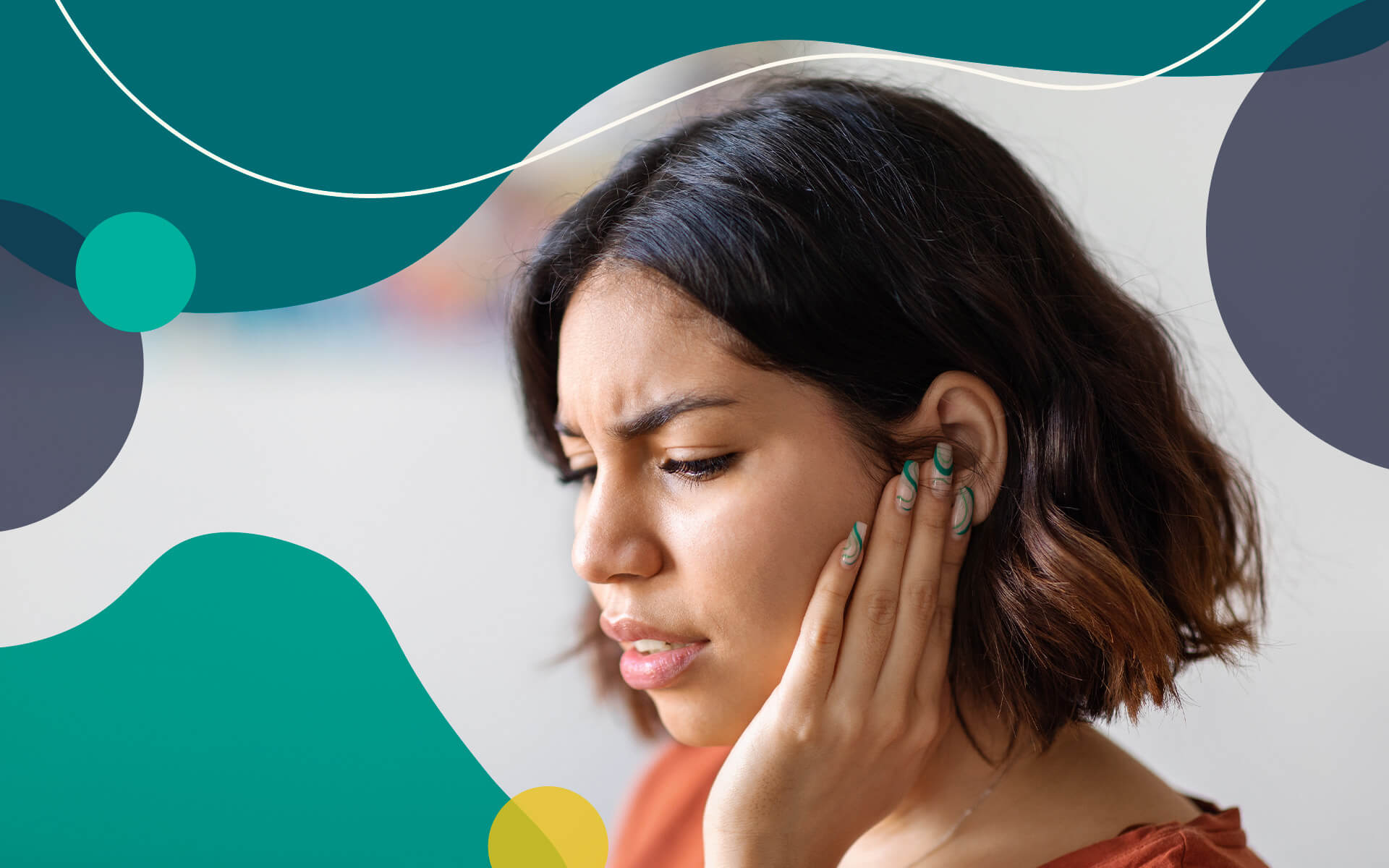
Body + Mind is reader-supported. We may earn an affiliate commission when you buy through some of the links on our site.
Ear infections can put a damper on your day. They can spur headaches and cause you to say, “what,” so frequently that people start to react with irritation instead of sympathy.
However, you might feel uncomfortable seeking medical care for what you consider a minor ailment. Additionally, leaving the situation alone might cause things to get worse. Here are eight natural remedies for ear infections to try — and when you should call the doctor.
Hydrogen peroxide potentially can help with several causes of impaired hearing. Because it is a cerumenolytic, it dissolves cerumen — the fancy word for earwax. You can also find carbamide peroxide, which adds oxygen bubbles to the mixture, but the plain variety will do for infections.
To use this remedy, draw one to three milliliters of hydrogen peroxide into a syringe and insert it in your ear. Be aware that the mixture can neutralize the effects of prescription antibiotics. Therefore, if you did see a doctor for drops, leave 30 minutes between each treatment to avoid undoing your efforts.
Garlic is an incredible root herb with potent antifungal, antibacterial and antiviral properties. It only makes sense that this essential oil can help to treat ear infections. However, please don’t be like the unfortunate fellow who stuck a clove up there for two months, producing an unbearable stench.
Instead, dilute your garlic in a carrier oil, such as coconut or olive oil. You can also find mixtures safe for use in your ear canal at many natural food stores.
Apple cider vinegar is another excellent antimicrobial agent. Because it is mild, it won’t dry out healthy cells — only attack the nasty ones.
To use this treatment:
You can also use rubbing alcohol instead of water, but doing so can cause unnecessary skin drying.
You might stumble across this beneficial healing plant along roadside waste areas — you’ll know it by the large stem and fuzzy leaves. Among herbalists, it has a reputation for treating burns and other inflammatory conditions of the skin.
In a 2003 study of 171 children, those who used ear drops containing mullein showed improved pain over three days. They reported more substantial relief than those given amoxicillin, a well-known antibiotic.
You can find mullein drops at natural food stores. Follow the instructions on the label — some manufacturers formulate them specifically for ear use.
Do you find that you get more frequent ear infections over the winter months? If you do, the problem might not be exposure to a wider variety of germs. It could stem from less sunlight.
One study by the Universita Degli Studi di Milano in Italy showed that children who received supplemental vitamin D experienced fewer cases of recurrent acute otitis — a fancy term for frequent ear infections. You might want to pick up some vitamins for the winter months.
Additionally, you could increase your time outdoors. Doing so improves your immune function and mood — if it prevents ear infections, too, you get a trifecta of goodness.
Ginger helps to ease pain because of its anti-inflammatory properties. As with garlic, you don’t want to use the raw herb. You need to shave it and infuse it into a carrier oil, like coconut or olive.
To make this natural remedy for ear infections, bash one teaspoon of ginger for every tablespoon of olive oil you use. Let it infuse for at least 15 minutes, then strain it with a cheesecloth or sieve. The longer you leave the mixture to blend, the more potent the effects.
It’s always a happy day indeed when a home remedy serves up a two-for-one punch. Olive oil sees frequent use as a carrier oil, but it does fine as a natural remedy for ear infections solo.
Olive oil works because it has some antibacterial action. However, the heftiest benefits may lie in the way it repels water. Microorganisms need H20 to flourish the same way humans do, and coating the inside of your canal can help prevent frequent infections that result from getting wet.
If you want to draw fluid out of one area and into another, salt is an ideal way to do it. It’s why too much of the stuff raises your blood pressure — it sucks moisture into your veins and arteries, increasing the pounding on their walls.
To heal ear infections, put a cup of coarse salt in the microwave for two to three minutes. Then, pour it into a thick sock to prevent burns. Apply it to the painful ear to draw the fluid out.
Finally, not all ear infections heal with natural remedies. If your condition lasts for longer than two weeks or frequently recurs, consult with your doctor. Likewise, do the same if the pain keeps you awake or you see a foul-colored discharge in your canal.
Try one of these natural remedies for ear infections the next time you feel an ache. You could save yourself money and a trip to the doctor.